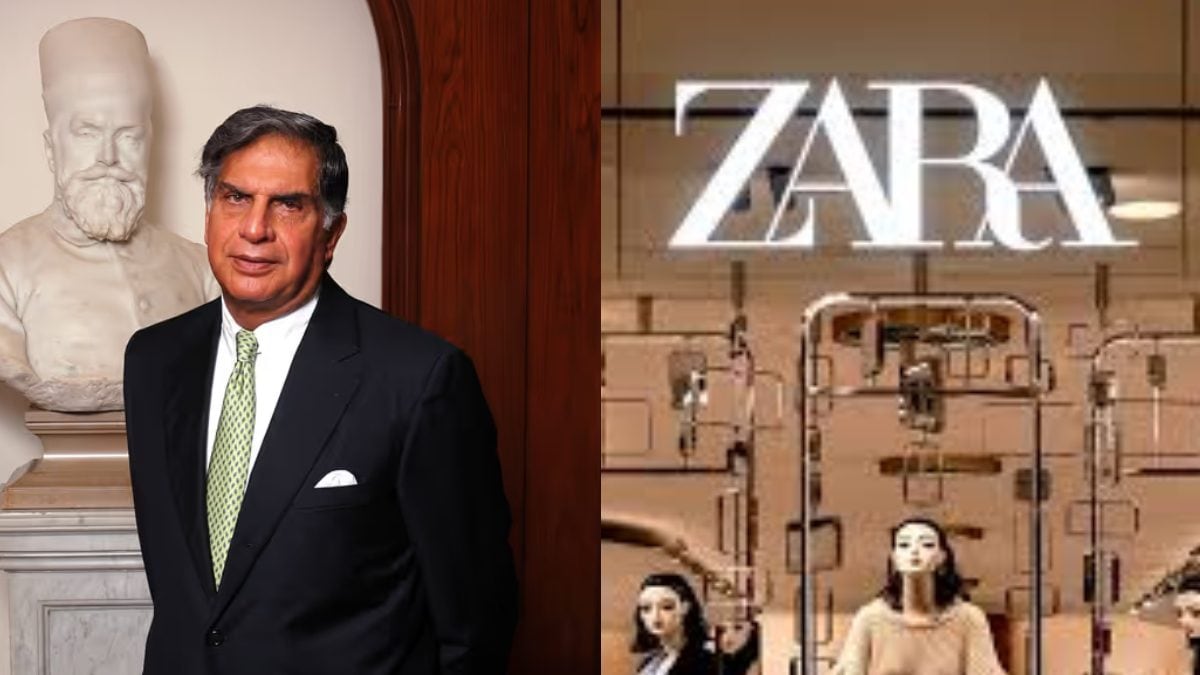Ratan Tata, the esteemed industrialist and entrepreneur, was not just a pioneer of Indian heavy industries but also a transformative figure in the nation’s fashion and retail landscape. His visionary leadership brought international fashion brands to India, fundamentally reshaping the country’s cultural landscape and elevating the perception of style among Indians.
The Arrival of Zara: A Turning Point in Indian Retail
Ratan Tata’s profound understanding of India’s growing middle class and their desire for global style paved the way for Zara’s entry into India in 2010. This arrival wasn’t just a simple brand launch; it represented a revolution in Indian retail, introducing a new paradigm of fashion consumption:
The Rise of Fast Fashion in India
Zara’s entry brought the concept of fast fashion to the Indian market. This model prioritizes the rapid translation of runway trends into affordable, high-quality clothing, available within weeks, not seasons. Prior to Zara’s arrival, Indian fashion was predominantly slow-paced and locally tailored, catering to a more traditional customer base.
A Symbiosis of Western and Indian Markets
The Tata Group, under Ratan Tata’s guidance, recognized the immense potential of fast fashion in India. They saw Zara’s entry as an opportunity to introduce a sustainable and adaptable model of global fashion to the local market. This strategic vision enabled a successful integration of a Western phenomenon into the Indian consumer landscape.
The Impact of Zara: A Cultural Shift
Zara’s introduction in India went beyond commercial success. It sparked a cultural shift in fashion and lifestyle, profoundly impacting a generation’s perception of style.
Metropolitan Sophistication
Zara’s arrival in India was strategically targeted toward metropolitan shoppers, aligning perfectly with the growing urban population. By offering access to global fashion, Zara amplified a sense of metropolitan sophistication and international style among Indians. This appeal further cemented its presence in the urban market.
Global Fashion Accessibility
The key to Zara’s success lies in its ability to bring the latest trends to consumers at an affordable price point. This accessibility fueled a shift towards a more fashion-conscious culture, attracting a diverse demographic and challenging the previous notions of fashion in India.
The Tata Group’s Role: Visionary Leadership
Ratan Tata’s leadership was central to the success of Zara in India. He recognized the cultural potential of fast fashion, seeing it as a way to bridge the gap between traditional and global style. The Tata Group played a pivotal role in supporting the brand’s introduction and integration into the Indian market.
Strategic Brand Partnerships
The Tata Group’s strategic partnership with Inditex, Zara’s parent company, paved the way for the brand’s seamless integration into India. The Tata Group leveraged its deep understanding of the Indian market and consumer preferences to ensure a successful entry for Zara.
A New Era in Indian Retail
The successful integration of Zara under Tata’s leadership served as a blueprint for other international fashion brands entering the Indian market. This led to a boom in global fashion options for Indian consumers, drastically changing the face of retail in India.
Legacy: A Fashion Revolution
Ratan Tata’s vision of introducing global fast fashion to India has profoundly impacted the country’s cultural landscape. This introduction redefined fashion accessibility, spurred a trend-conscious culture, and showcased the growing fashion sophistication of the Indian market on the global stage.
The Rise of a New Fashion Generation
Ratan Tata’s legacy is evident in the fashion landscape of modern India. He fostered a generation of Indians who are fashion conscious and connected to global trends. His vision laid the groundwork for a dynamic Indian fashion market that continues to evolve and thrive today.
Take Away Points
- Ratan Tata’s legacy in fashion extends beyond business success: He fundamentally changed the Indian fashion landscape by introducing global fast fashion to the country.
- Zara’s entry into India was more than just a brand launch; it represented a cultural shift. The arrival of fast fashion fueled a more trend-conscious generation of Indians.
- The success of Zara in India showcases Ratan Tata’s visionary leadership and his understanding of the evolving Indian market. His vision of bringing global trends to the local market played a key role in shaping a new era in Indian retail.
- Ratan Tata’s contributions continue to impact India’s fashion industry. He left a legacy that inspires both business leaders and fashion enthusiasts to embrace new opportunities and global trends.




